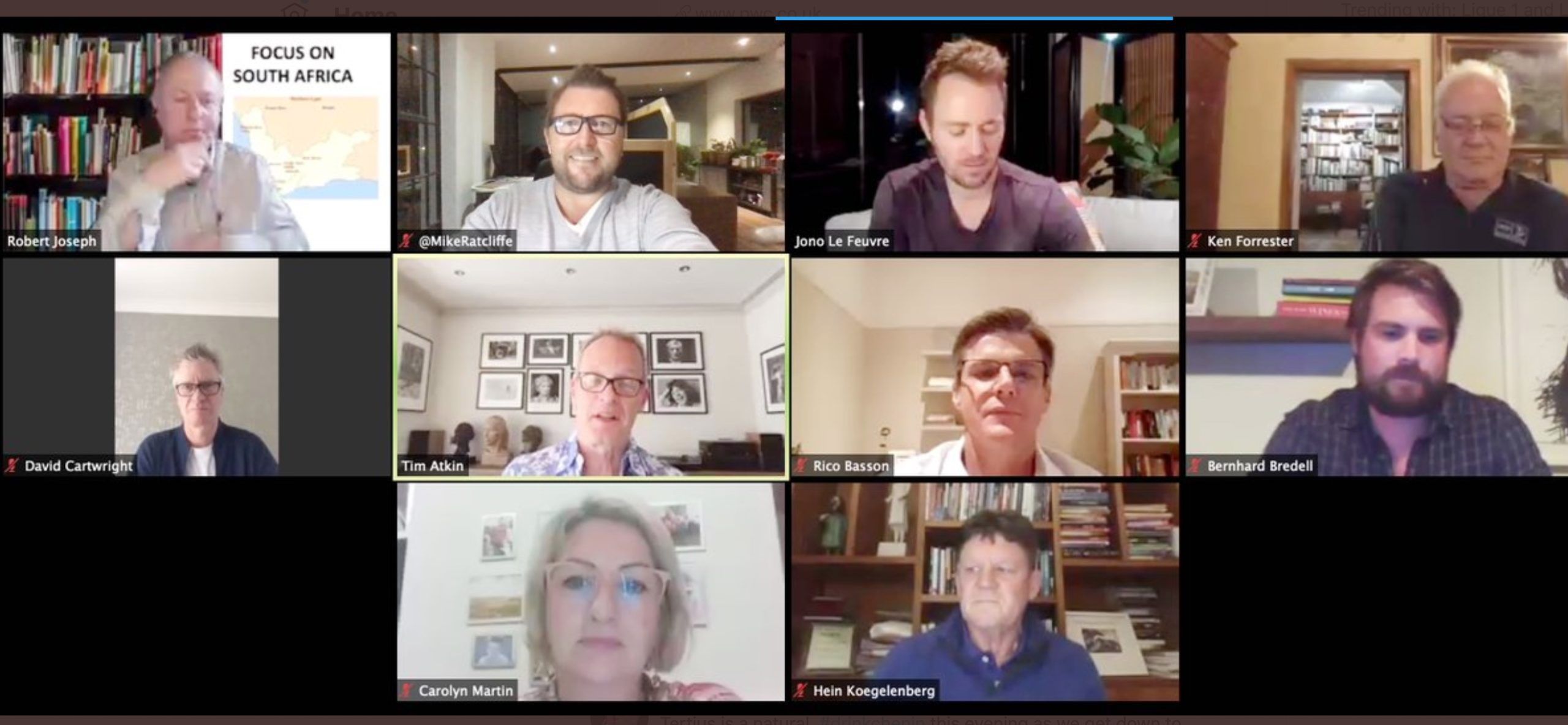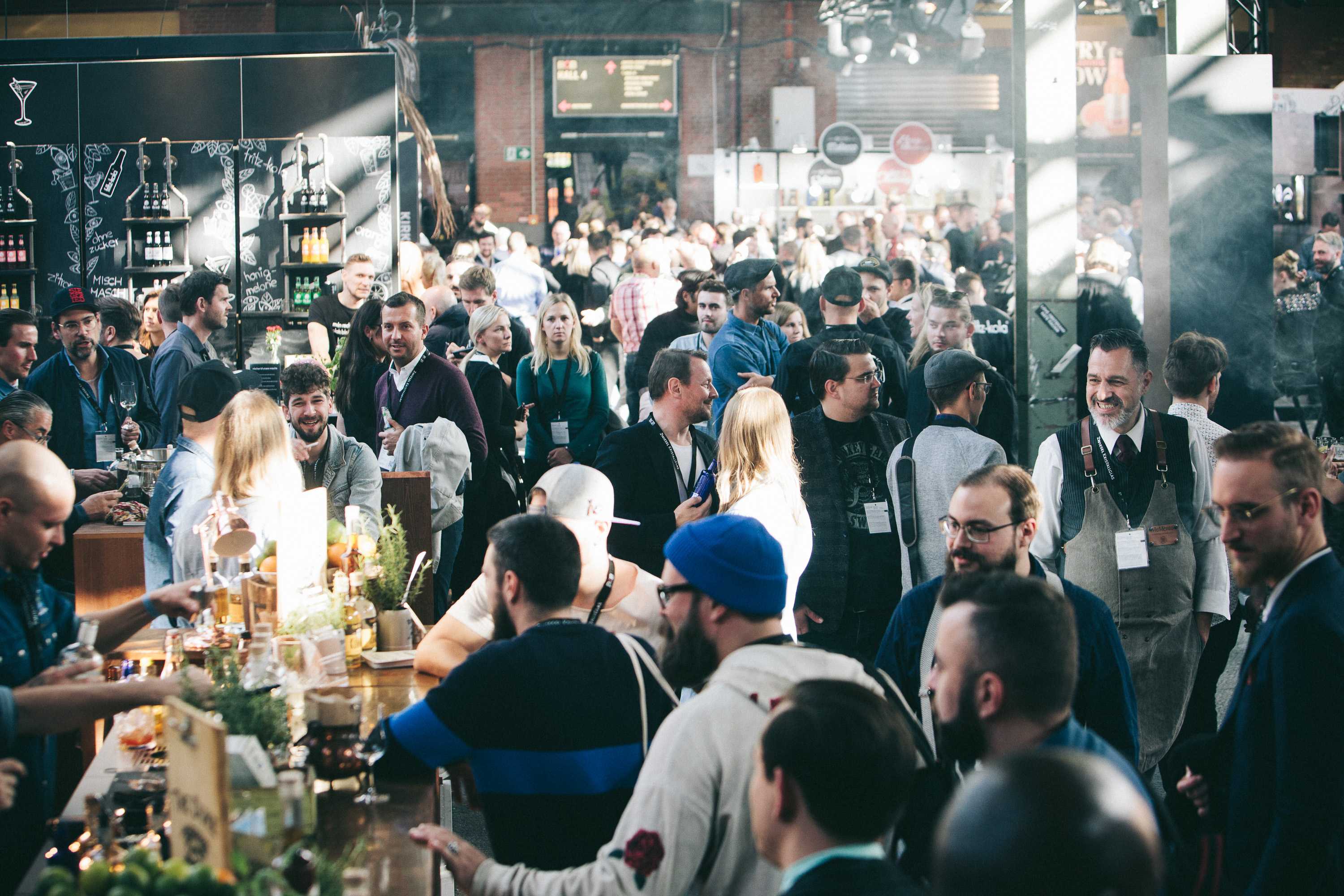One of the only highlights from the global Covid-19 lockdown has been how quickly we have turned to online video conferences to allow the world of wine to come together and spread news and key messages quickly. The need to do so has never been greater in South Africa – which makes last week’s Zoom debate amongst some of its industry leaders such an important opportunity to share its story and what is really happening in the country.
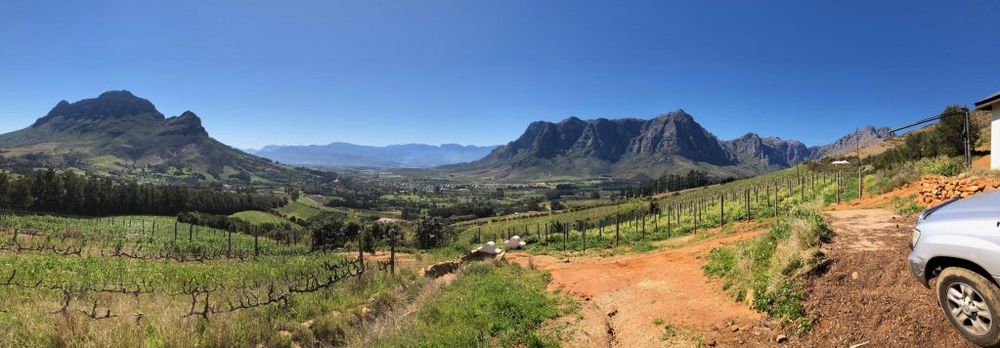
The South African landscape offers a diverse range of great quality, but also brilliant value for money wines. None of which it has been able to sell domestically for over the last month as well as measures that effectively meant exports were stopped for weeks too…
The global wine industry’s focus has been on South Africa for the last seven weeks for all the wrong reasons. It has been the only main wine producing country in the world that has not been able to continue to harvest, handle, produce, transport and ship wine. In fact so severe has the South African government’s country lockdown been it has also banned any buying or selling of wine or alcohol at all.
The ramifications for the nation’s wine industry, and all the communities it supports, has been near on catastrophic with no wine being sold, and no money being made. But we can only really get a sense of just how dire the situation has been from the press reports and official statements that have come out from the wine authorities. It’s hard to really feel the impact it has had for all of us watching in from the rest of the world.
Last week we were, though, able to experience, hear, and see first hand just how devastating the lockdown has been for all parts of its wine industry during, at times, a moving and emotional live online Zoom debate featuring many of the country’s leading wine figures.
You can watch for yourself here the near 90 minute web broadcast as part of the daily Real Business of Wine series organised by wine writer and producer, Robert Joseph, and Polly Hammond of 5Forests, a digital communications agency for the wine trade and chaired by wine writers, Tim Atkin MW and Jono Le Feuvre.
But it brought home just how hard the industry has been hit, but equally how united and determined it is to bounce back once the lockdown is lifted.
Which partly came on May 1 when the government relaxed its restrictions from a full lock down level 5 to level 4 which, vitally, now allows the movement of goods, including wine to the ports for export.
It has been like plugging an intravenous drip into the South African wine supply and the collective cash flow of its wine producers, distributors and retailers. The chance finally to get wines sitting at ports, or in cellars out of the country and into their key markets around the world.
Intense time
Rico Basson, executive director of VinPro, the body that represents 2,500 of the country’s grape growers and wine producers, said the level 5 ban did not actually ban exports per se, just the ability of wineries to get their wines to the ports to ship. But he stressed it will still be a slow process as the conditions will mean bottling lines can only run at 20% capacity to keep within safe distancing rules.
He was able to share just how intense the last few weeks have been. “When the lockdown came on March 27 we immediately knew we were in for a crisis as a wine industry, as wine was not classified as an essential product,” he explained. At least 95% of the 2020 harvest had been completed and it was able to get dispensation to allow to carry on picking and producing the remaining 40k tonnes – but only a “couple hours” before the level 5 lockdown began.

Vinpro and Rico Basson have played a pivotal role in leading the wine trade’s lobby of the South African government
When it was able, along with lobbying from Wines of South Africa and the South African Liquor Board, to agree with the government to re-start exporting wine a week later at least that gave the industry some rest bite. But that only lasted nine days before the movement of wine was halted once more.
Noticeably the South African panel were also quick to praise the government for the tough actions they have taken in order to safeguard the country’s health and prevent the spread of the coronavirus. They accept they have been “collateral damage” to what has been a bigger national cause.
“We want to complement the government for being proactive,” said Basson. “For a country that has huge social economic issues, I think it was the right thing to do.”
Ken Forrester of Ken Forrester Wines agreed: “The main priority was safety and the government got that right – 100%.”
More to come
The panel was also agreed the industry needs to expect further lockdowns and upheavals in the coming weeks and months and that it is likely the government could move between levels 3, 4, 5 if the virus situation changes. So uncertainty is going to be a way of life for some time.
Forrester added: “It’s all a complete unknown. Every country is having to grapple with it. There is also so much disinformation out there, and so much is unknown.”
He also said the country had “been in worse situations” even in its recent history with all the social, political and race issues. “We have come a long way and we will get through this. But we are going to be at a major competitive disadvantage, where we have not been able to fulfil our orders for supermarket shelves. We are going to have to reclaim those spaces and it’s going to be a long road ahead of us.”
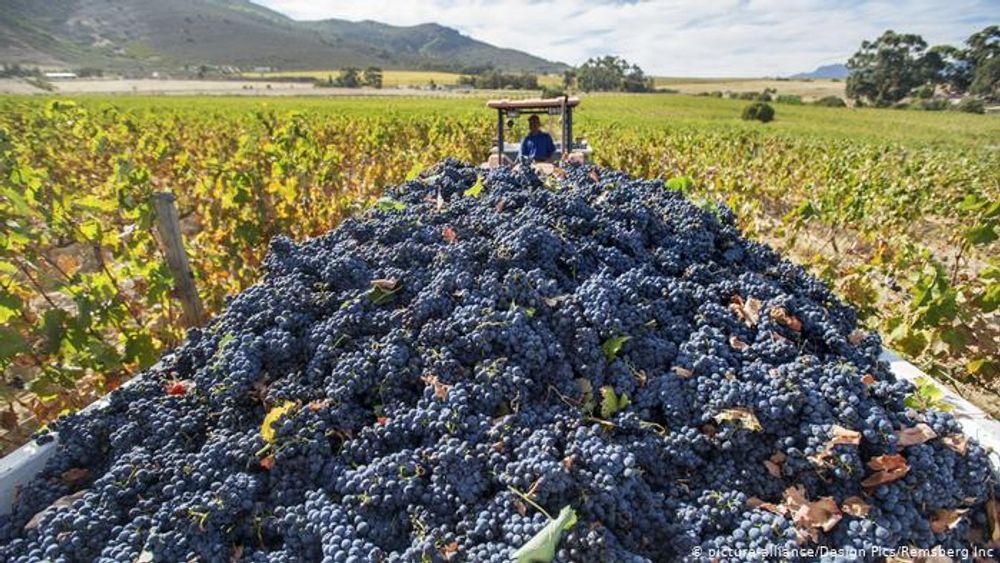
At least South African producers have been able to finish what is said to be an excellent vintage and work with the grapes in their wineries during the lockdown
Global support
There was, though, encouraging words from the UK where David Cartwright, sales director for Seckford Agencies, that imports Kanonkop and Rustenberg, believes there is strong good will to support South Africa in the near, medium and long term. He explained: “We are finding there is a lot of collaboration with retailers in the UK. Providing they know what they can control. We are after all in the supply chain business and availability is the key word that we and our suppliers live and die by.”
He added: “We are finding there is incredible support [from retailers] and there are clear and open lines of communication. After all it’s all about trust and whether retailers can believe and trust in us. When you are in a crisis in a retail situation like a product recall a retailer wants to know four things: What happened? Why has it happened? What can we do to make sure it does not happen again? And then let’s review it again.”
But he stressed it was vital producers be open. “All my customers need to be communicated to constantly,” he said.
Evan Alexander, export director, of Vinimark, one of the country’s biggest wholesale and distribution business, said he had been particularly impressed with the support it had received from Waitrose in the UK, and, in particular, how it had been able to move promotions to different times of the year – “which is so hard to do”. “There has been a lot of sympathy from UK retailers,” he added.
Hein Koegelenberg, chief executive office of La Motte Estate in in Franschoek, said it was so good to have that support out there from its international customers and it was all ready to ship containers. “We have also seen good loyalty from China towards South Africa at this time as well,” he added.
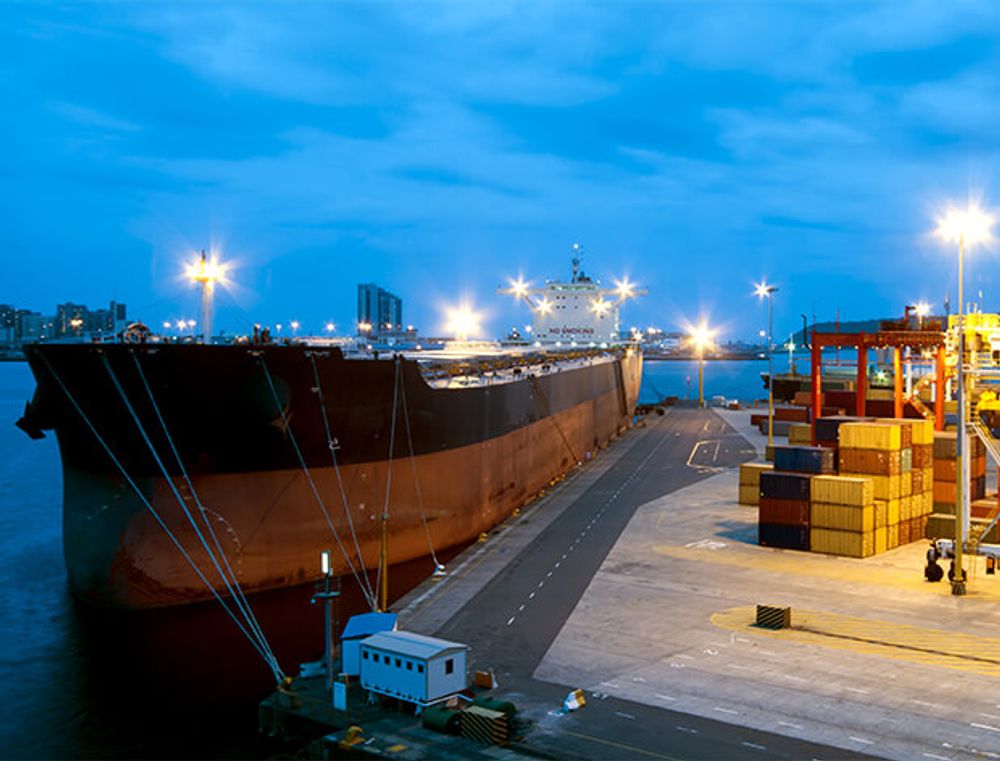
Ships are finally leaving Cape Town again
Demand and supply issues
The big issue, though, stressed Alexander is how much demand is there going to be for South African wine considering there is also such a glut of wine now in Europe with major countries such as France, Italy and Spain unable to sell wine in their own countries.
Basson said how the market behaves in Europe will have a big impact on South Africa’s bulk wine business, which still accounts for 60% of its exports. It does have an advantage thanks to its exchange rate, but then does it want to come back into the market for only its cheapest wines?
“Having done such great work to grow value in our wines, it would be a crying shame if over night we lose our price point position,” said Basson. “But we have been inundated from markets all over the word offering their support and understanding and having empathy for what we are going through.”
Forrester said the medium term issue for producers wasn’t just about exports. Many also rely so heavily on their domestic trade. He, for example, is split 50/50 export and import and of the domestic sales, 80% goes through the on-trade. “There is going to be a huge slowdown in the on-trade.”
He said the best way for producers to come out of this situation is to be upfront and open: “Honesty is our best defence. There is a lot of empathy out there and we are going to need to support our local restaurants when they do open.”
He said producers might need to supply restaurants with free wine just to help them get back on their feet. “We may not make a profit out of this, but we can keep all ourselves alive. It’s going to be a long dry summer.”
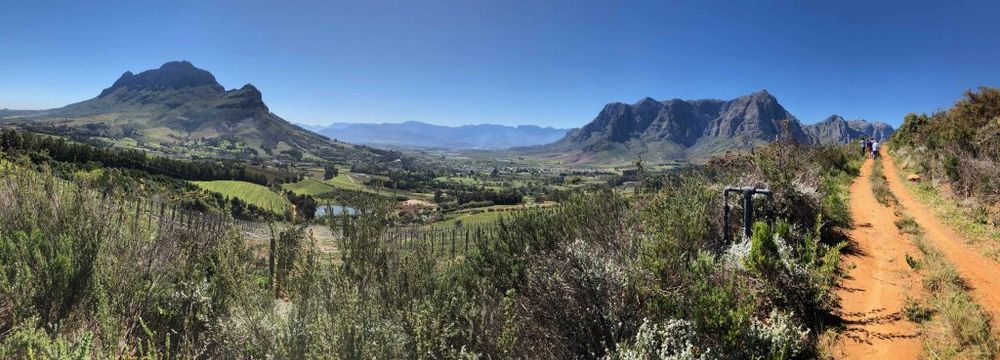
The stunning Banghoek Valley is just one of the vistas that keep tourists flocking to South Africa – but how long before they will return in serious numbers?
Koegelenberg said there was also the issue of lost trade through tourism, particularly for a region like Franschoek. “If the restaurants don’t open, then people won’t come to the wineries. One of our biggest problems is therefore going to be motivating our teams through this. I can’t see tourism coming back to even half where it was for the rest of the year.”
The recovery
Wineries that are well placed to bounce back quicker than other are those with existing online and ecommerce models, said Carolyn Martin, co-owner of Creation Wines. “Online has been key for us, but it is also a good way to keep our staff motivated, and working.”
By having direct to consumer and online it means the winery is able to have different routes to market and also vitally different audiences to sell its wine too, she added. Wine writer, Jono Le Feuvre, said it was encouraging to see so many businesses move over to online already and that can only continue going forward.
Alexander said the issue for producers in the longer term is the impact the lockdown is going to have on the overall economy in South Africa and the livelihoods of average families: “Every family in South Africa is going to take a knock. They are going to have limited cash.”
He said Vinimark was aware of its own position in the market as one of the country’s biggest wine players and that it was committed to doing what it can to “play our part. “A rising tide raises all boats and it is our responsibility to do that.”
Alexander thought it could also be the impetus that the South African industry to look far more seriously at the export opportunities within Africa as a continent. “Yes, there are difficulties in Africa, but we should look there.”
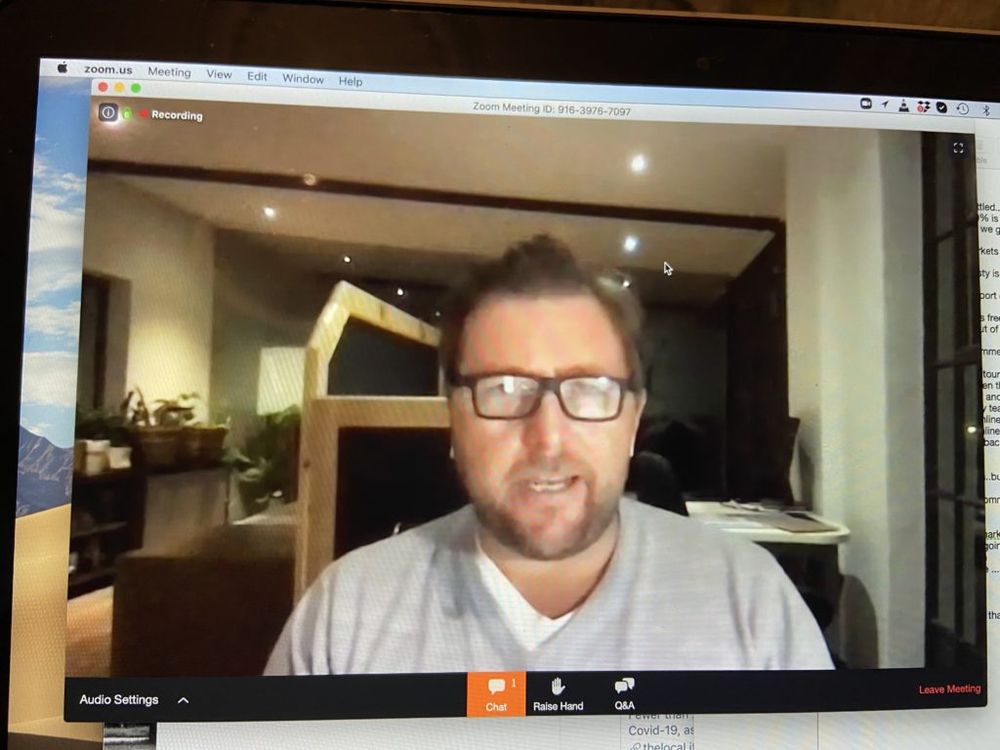
Mike Ratcliffe says everyone’s efforts needs to be on trying to help as many producers survive the lockdown
Mike Ratcliffe of Vilafonte, who was also talking on behalf of Stellenbosch Wineries, said everyone’s priorities should first be on survival. Simple as that. “ We have got to survive first. But the pivot to online is going to be massive, we need to be unlocking where we can get cash coming through the industry. So export, online, domestic. But it’s never going to be the same again. This is not just going to affect a few wineries. There are going to be wholesale losses, so we need to have creative ways for the entire country to support theses businesses,” he claimed.
He pointed to the amazing team work and collaboration that has happened in a spate of a few weeks to create the Stellenbosch Unites initiative that is looking to raise funds and provide support to vulnerable communities caught up in the crisis. “Humans are very resilient and there are some pretty amazing things going on,” he said.
Steps for survival
Basson said the immediate pressure is to literally get the industry and as many wineries as possible through the next few months. Its stimulations of the market show there is going to be a “cash flow drought” in June, July and August across the industry. “We have to seek an avenue to get the industry through to August and September,” he stressed.
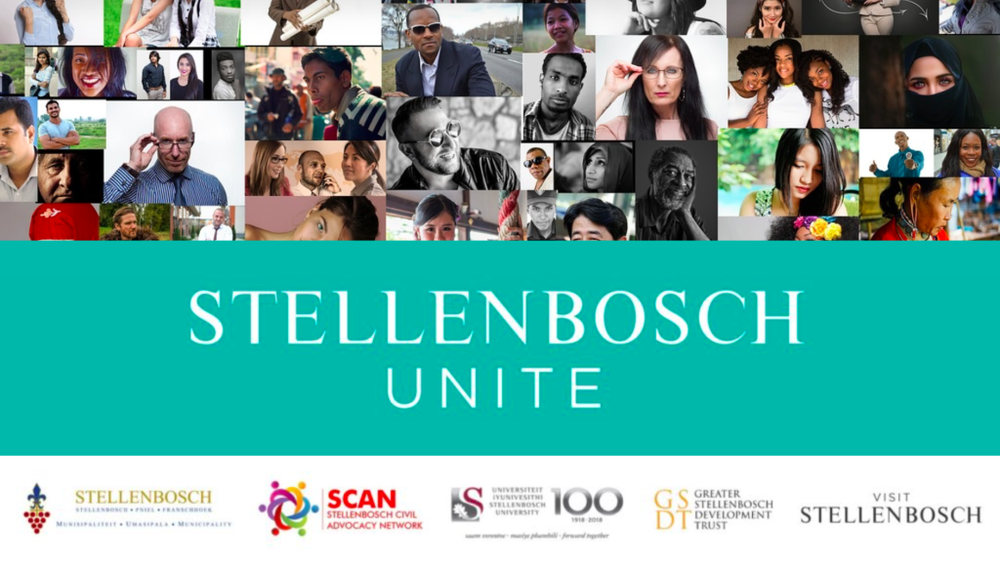
It is already working with banks and the government to get as much help as they can on financial support and help with excise. “As cash flow becomes critical, particularly for the smaller, premium wineries, we risk losing a lot of them. Without assistance we could lose 60 to 80 wineries which be a catastrophic for the industry. We huge collaboration to navigate through this.
Alexander said it was therefore vital every winery was doing what it can now to really engage and talk about what it is doing, and do everything possible through social media, online tastings, webinars to get your brand and name out there.
Koegelenberg’s plea to the industry was to do all it can in the coming months to only sell its 2019 wines before moving on to 2020.
Final word
The final word goes to Ratclliffe who said although it was a “tough situation” for everyone, this was not at time for the industry to feel sorry for itself. There was a bigger issue taking place in the country over the health and prosperity of its people.
“Our good positive, and strong relationships around the world are only going to take us so far. We are in the long term going to have punch above our weight. We might get some early breaks out there over supply, but we have to look after our people. There are those with no money, who can’t eat. If we want to get our industry back into some sort of normality then without out people we will never be able to do that.”
Koegelenberg agreed: “The industry has to work very hard to make sure businesses survive, and that the people survive with the business.”
- You can watch the full debate by clicking here.
- Stellenbosch Unites is looking to raise money to help feed and support vulnerable communities in South Africa that have been hit by the Covid-19 outbreak and is calling out to the international wine trade for its support. You can make a donation by clicking here.

